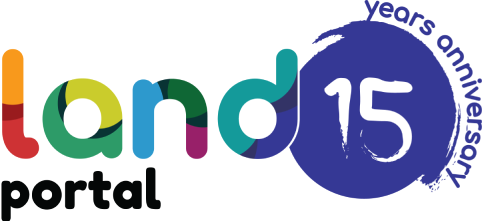The reports cover the development of Climate-Smart Maps and Adaptation Plans (CS-MAP) for application in South Central Coast provinces, such as Khanh Hoa, Binh Thuan, Ninh Thuan, and Phu Yen. The documents aim to address the following issues: (1) to identify areas that need to delay sowing, conversion of crops, to suspend, or have an early planting to adapt to water sources and weather conditions; and (2) to ensure the involvement of stakeholders from experts as well as the public in determining the level of adaptation.
Search results
Showing items 1 through 9 of 12443.-
Library ResourceJanuary, 2020Iceland
-
Library ResourceJanuary, 2020Netherlands
Foresight planning allows governments to construct development narratives of their desired futures and can help policymakers to better frame future policy environments. In this light, foresight can be used to influence SADC’s regional and member state strategies and policy development to ultimately enhance climate-resilient development pathways, including through the use of scenario-guided policy making, strategic planning, regional prioritisation and other foresight approaches.
-
Library ResourceJanuary, 2022Switzerland
In Central Asia, more than 90 % of annually renewable water resources are consumptively utilized in irrigation, and allocation conflicts between large-scale hydropower in the upstream and irrigation in the downstream occur regularly and mostly across complex international borders, especially during water scarce years and low storage conditions. With increasing attention on climate-neutral hydropower solutions, including on small-scale hydropower.
An abstract submitted to the EGU General Assembly 2022. -
Library ResourceJanuary, 2022Iceland
The Michigan State University Alliance for African Partnership (AAP) launched a multi-country study to contribute to upgrading and tailoring the agricultural extension curricula at participating institutions. The first phase of primary data collection consisted of focus group discussions. The focus groups were structured around a specific objective: gathering information around specific questions. Focus group discussions were followed by an online survey of Agricultural Extension and Advisory Services (AEAS) role players, of which the results will be discussed separately.
-
Library ResourceJanuary, 2022France
A chapter in Agroecology Transformation for Sustainable Food Systems: Insight on FRANCE-CGIAR Research. This chapter is about greening marginal agrosylvopastoral drylands in the Middle East. ICARDA, in collaboration with international and national partners and target dryland communities, developed agrosylvopastoral watershed rehabilitation and sustainable management packages that capitalize on the upsides of the overall threatening conditions to foster agroecological transition.
-
Library ResourceJanuary, 2020Netherlands
Van Yen District in Yen Bai Province represents the general terrain conditions and farming systems of the northern mountainous region of Vietnam. It has suffered land degradation due to soil erosion and nutrient depletion, which in turn led to declined crop yield, and food insecurity. The district experienced these impacts due to unsustainable upland agricultural practices. The Department of Agriculture and Rural Development realized that their previous practices would not leave anything behind for the next generations.
-
Library ResourceJanuary, 2020Switzerland
Smallholder farmers grow a major share of the food consumed around
the world and preserve rich, biodiverse landscapes.1
But despite their
fundamental importance, many small farmers lead lives of deepening
vulnerability – caught between subsistence strategies threatened by
ecological degradation and commercial food systems that devalue them
as cheap labour. Alternative agricultural models are urgently needed.
One long-running movement still shows major untapped potential: that -
Library ResourceJanuary, 2023Italy
This learning module shows how gender equity and social inclusion (GESI) considerations can be identified and integrated in programmes and initiatives in the Water-Energy-Food Environment (WEFE) Nexus. Intentionally focusing on gender and social inclusion in designing, implementing and monitoring Water-Energy-Food Environment initiatives is critical to ensure that these initiatives benefit and do not harm women and other marginalised groups and communities.
-
Library ResourceJanuary, 2021Netherlands
Depuis 2011, le programme de recherche du CGIAR sur le Changement Climatique, l’Agriculture et la
Sécurité alimentaire (CCAFS) soutient la mise en œuvre d’une agriculture intelligente face au climat (AIC)
au Sénégal à travers le développement et la mise à l’échelle de technologies et pratiques AIC avec l’Institut
Sénégalais de Recherches Agricoles (ISRA).
Dans ce cadre, le CCAFS a mis en œuvre de 2019 à 2021, un projet de « développement de chaînes de -
Library ResourceJanuary, 2020Netherlands
This paper presents an engagement study that focuses on a provincial low emission roadmap in rice production. Results obtained in the study of An Giang province show that AWD adoption is strongly influenced by biophysical conditions and technical guidance, while adoption of environmentally friendly straw management is mainly driven by market, rainfall distribution and quality of transportation network. In An Giang’s districts, adoption of LET can be improved in the next 5-year plan.
Land Library Search
Through our robust search engine, you can search for any item of the over 64,800 highly curated resources in the Land Library.
If you would like to find an overview of what is possible, feel free to peruse the Search Guide.

